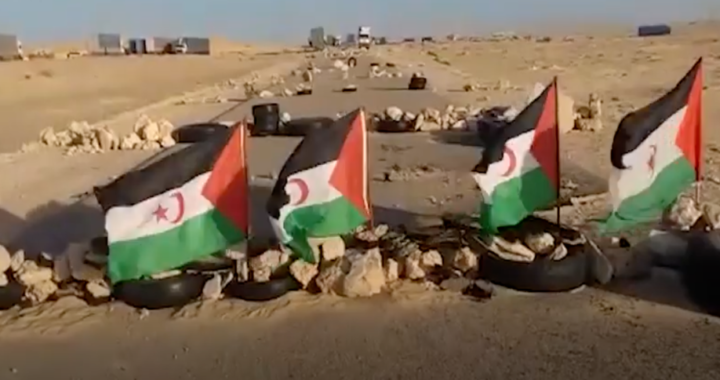Western Sahara is a desert territory populated by nomadic tribes, which has never been organized into a Nation-state. A territory of 266 000 km2 in northwestern Africa, bordered by Morocco to the north, Algeria to the northeast, Mauritania to the east and south, while its west coast overlooks Atlantic. It was under Spanish administration until 1975, invaded and annexed thereafter by Morocco and Mauritania.
By Rabah Arkam
Since 46 years, while the United Nations sought a settlement of the conflict in Western Sahara after Spain’s withdrawal from the territory, both claimed by the Moroccan monarchy on its historic right to control the southern provinces, and by the Sahrawi Arab Democratic Republic (SADR), founded by the Polisario in February 1976, on the basis of international law and the principle of the right of peoples to self-determination, which is the basis of the policy of the Organization of the African Union, also intervened in 1979 to find a peaceful solution to the conflict.
According to the United Nations, the Sahara is a non-autonomous territory and has not yet regained its legal status which has remained in abeyance since the 1991 ceasefire, opponents remain frozen in their positions, separated by a “wall protection “, largely controlled at 80% by Morocco on the Atlantic coast and the rest by the Polisario with a buffer zone under the surveillance of Minurso, the UN peacekeeping operation, supposed to organize a referendum of self-determination since 1992, mission never achieved.
Blocking the case and maintaining the status quo, however, have negative consequences at both regional and international level. On terms of regional stability, the Sahrawi question has spoiled relations between Algeria, the main support of the Polisario, and Morocco, which claims the territory it has occupied since 1975, leading to a costly arms race.
Since August 1994, the land border between the two countries has been closed, with dramatic consequences for the economy of border regions, such as the Moroccan city of Oujda which depended on Algerian trade and tourism.
So far, no agreement has been reached between the two parties. The proposal made by Morocco to grant the Saharawis an “autonomy” status is supported by France. As well as the recognition by the Trump administration of the sovereignty of Morocco over the whole of Western Sahara, related on diplomatic normalization with Israel, had not only surprised the Polisario but also Algerian regime, who made nationalism a political resource for internal use.
After thirty years of peace between Morocco and the Polisario, the Moroccan army intervened on November 13, 2020 in a demilitarized zone in Western Sahara, to unblock the Guerguerat crossing point, an essential road axis for economic exchanges linking Morocco to several sub-Saharan countries, closed by independent Sahrawi activists, which has slowed down traffic, in particular for the transport of fruit and vegetables, to put the question of Western Sahara among the priorities of the international community.
The points of view of the parties seem irreconcilable, on the Moroccan side, justifies its intervention at the border post of Guerguerat is to “secure the road traffic” commercial axis leading to West Africa, blocked by a group of separatist militants Sahrawi, which Polisario contests the legality of this axis – qualified as an “illegal breach”, says itself “in a state of war of self-defense”.
According to human rights organizations claim that Morocco continues to violate the political and human rights of the Sahrawis since 1975. Human Rights Watch and Amnesty International have repeatedly warned that there has been a notable escalation of repression in the territories Sahrawis occupied.
Nowadays, the Polisario is calling for a self-determination referendum planned by the UN while the Moroccan monarchy has made the Sahrawi question an element of national unity, a means of controlling political parties and the army. A settlement against it would be a ferment of destabilization for the monarchy, preferring to speak of a very great autonomy under its sovereignty. As it stands, it is indeed an unresolved conflict over time without triumph.










